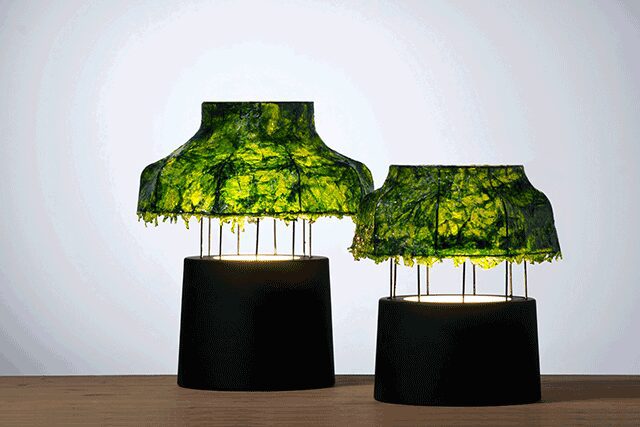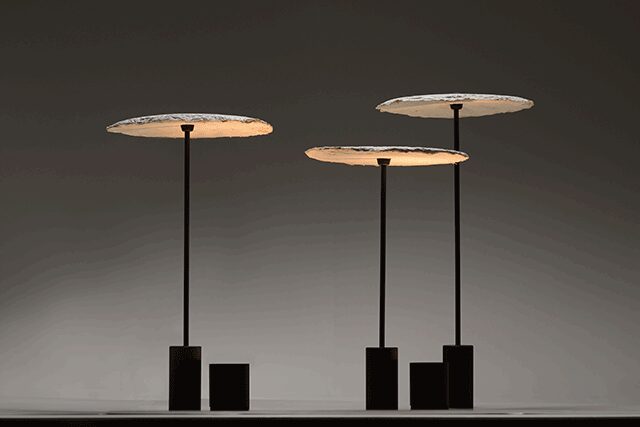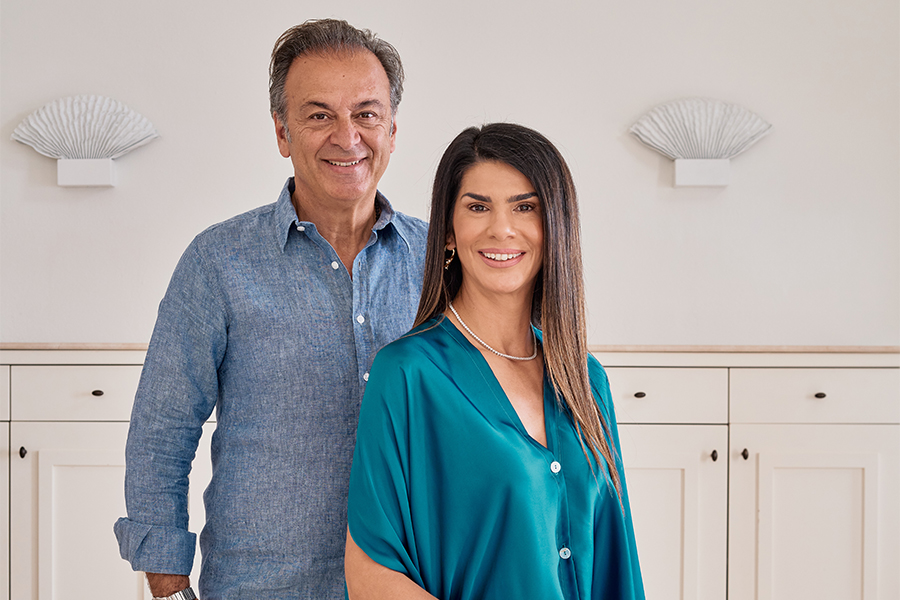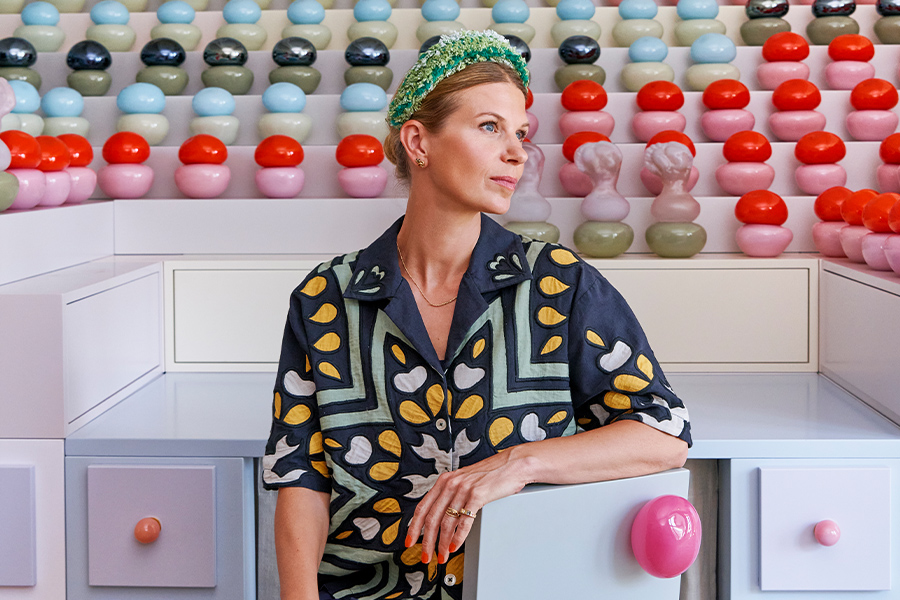For Nir Meiri, motivation extends far beyond the simple art of experimentation. As an ardent environmentalist, he considers it a driving force in his personal and design ethos. “Developing new sustainable materials that can be introduced into our domestic environment will be a huge step for humanity,” he says. Indeed, the Israel-bred, London-based designer has always found inspiration in nature, notably in one of his first products, a plastic chandelier made from disposable plant pots, irrigation pipes, and water droppers.
After founding his namesake firm in 2010, one of his earlier experiments was the Desert Storm lamp, which features shades molded out of sand to resemble native plants found on the Mediterranean shoreline. Two years later, in 2013, he debuted the Marine Light lamp, for which he applied fresh seaweed to thin metal strings to form a shade that, when lit, creates a translucent, neon glow. More recently came the SeaSalts lamp. Made from pure sea salt cast in a resin mold, the natural substance is slowly absorbed then crystallizes into a lamp shade with a rough texture.
His latest, however, is a collaboration with London-based startup BIOHM—a sustainably focused enterprise that employs “bio-based materials” to help rethink the construction industry. Together, they’re developing a series of Mycelium table lamps “that highlight the beauty of a not-very-sexy sustainable material and prove how it can become beautiful, elegant, and easily introduced into our homes,” he says. It’s to be followed next month by a lighting collection made from red cabbage treated with water-based color-preserving adhesives.
Also in September, he will venture into textiles with India-based Vaidehi Thakkar Studio, which treats and molds fruits and vegetables for specific shapes and applications. It’s another avenue, he says, that continues his mission “to help save the planet.”
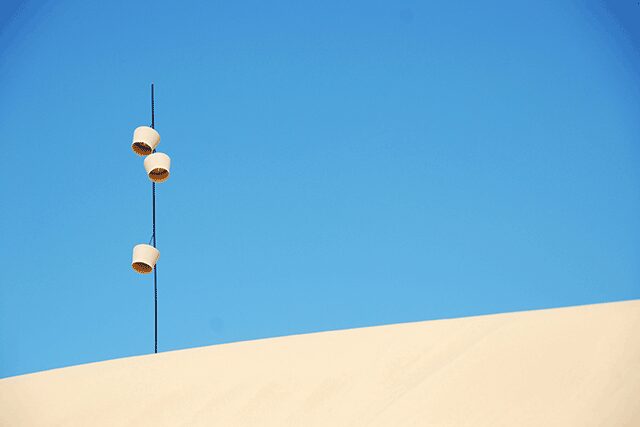
Made by pouring sand into a glue-covered mold, the shades of the Desert Storm lamp reveal its grainy pattern when the LED light is turned on

